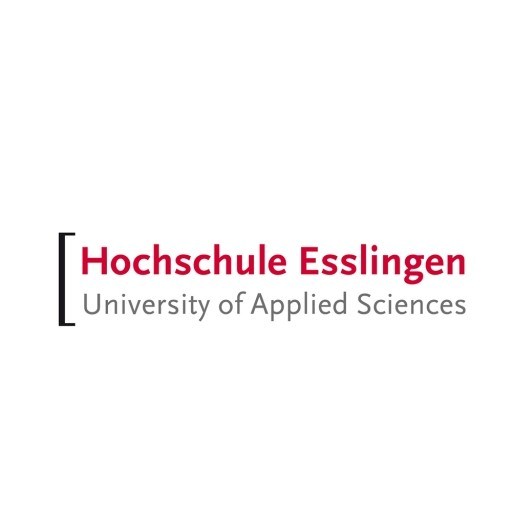Photos of university / #aaustudieliv
The Master's programme in Networks and Distributed Systems at Aalborg University offers students a comprehensive education in the design, development, and management of advanced network infrastructures and distributed computing environments. This programme is tailored for individuals interested in understanding the fundamental principles and emerging technologies that underpin modern communication systems, cloud computing, Internet of Things (IoT), and large-scale distributed applications. Throughout the course, students gain in-depth knowledge of networking protocols, network security, data communications, and system architecture, equipping them to address complex challenges faced by organizations operating digital and interconnected systems. The curriculum emphasizes a hands-on, problem-based learning approach, encouraging students to work on real-world projects and collaborate with industry partners to develop practical solutions. Students will explore topics such as wireless networks, multimedia communication, distributed algorithms, cloud computing architectures, and the management of big data across distributed systems. The programme also provides insights into new and innovative areas such as Software-Defined Networking (SDN), Network Function Virtualization (NFV), and cyber-physical systems, preparing graduates for careers in research, development, and technical consultancy in both academia and industry. Aalborg University's strong emphasis on interdisciplinary learning and close links with industry ensures that graduates are well-equipped with both theoretical knowledge and practical skills. They are prepared for roles such as network architect, system developer, security analyst, or research scientist, working to enhance the connectivity, security, and efficiency of digital infrastructures worldwide. With a curriculum designed to adapt to rapid technological advancements, the programme ensures that graduates remain relevant and competitive in the ever-evolving field of networks and distributed systems.
The Networks and Distributed Systems Master's programme at Aalborg University offers a comprehensive and in-depth education in the fields of computer networking, distributed computing, and cybersecurity. Designed to prepare students for the evolving challenges of modern digital infrastructure, the programme combines theoretical foundations with practical applications to ensure graduates are well-equipped for careers in academia, industry, and research institutions. Throughout the programme, students will explore core topics such as network architecture, protocols, and standards, gaining insight into how large-scale networks operate and are maintained. The coursework emphasizes understanding distributed systems, cloud computing, and the Internet of Things (IoT), providing students with skills to design, analyze, and optimize complex networked systems.
The curriculum includes modules on network security, data management, and system performance, enabling students to develop robust solutions for securing and efficient operation of networks. Hands-on experience is prioritized through laboratory work, projects, and collaborations with industry partners, giving students the opportunity to work on real-world problems and innovative solutions. The programme also addresses emerging trends such as 5G networks, virtualization, and edge computing, ensuring students are prepared for future developments in digital communication and network infrastructures.
Students will have access to state-of-the-art facilities and are encouraged to engage in research activities alongside faculty members. The programme fosters a collaborative learning environment, emphasizing teamwork, problem-solving, and critical thinking skills. As part of their education, students are expected to undertake a master thesis project, often in collaboration with industry or research organizations, which allows for specialization in a particular area of interest within networks and distributed systems.
Graduates of the programme will be prepared for a variety of roles such as network engineer, system architect, security analyst, or research scientist. They will possess a solid foundation of technical knowledge, complemented by practical experience and critical thinking abilities, enabling them to contribute effectively to the development and management of modern networked systems. With Aalborg University's focus on innovation and applied research, students will be well-positioned to influence the future of digital communication and distributed computing technologies.
The Master's degree programme in Networks and Distributed Systems at Aalborg University requires applicants to have a relevant bachelor's degree or equivalent within computer science, computer engineering, or related fields with a strong focus on computer networks, distributed systems, and programming. Applicants must demonstrate proficiency in key programming languages such as Java, C++, or Python, and possess foundational knowledge in networking protocols, network security, and system architecture. The programme emphasizes a multidisciplinary approach, so experience or coursework in data communication, software development, and system administration are considered advantageous.
Applicants are also expected to have good analytical skills and the ability to work independently as well as in teams. Work experience in network management, security, or distributed computing can strengthen an application, though it is not strictly mandatory. Proficiency in English is required, demonstrated through standardized tests such as TOEFL or IELTS, unless the applicant has completed previous education in English.
Once admitted, students are expected to engage actively in coursework, project assignments, and research activities, often working collaboratively in groups to solve complex problems in networking and distributed computing systems. The curriculum includes courses on advanced networks, cloud computing, distributed algorithms, security models, and network management. Additionally, students participate in seminars and workshops that promote innovation and practical skills.
The programme encourages international mobility and collaboration, and students may have opportunities to undertake internships or research exchanges within partner institutions worldwide, further broadening their practical and theoretical expertise in networks and distributed systems. Successful graduates will be well-prepared for careers in academia, industry, or government agencies specializing in networking infrastructure, cybersecurity, cloud services, and distributed computing solutions.
The Networks and Distributed Systems master's degree program at Aalborg University offers various financing options to support students throughout their studies. Funding opportunities include government student grants and loans for Danish and EU/EEA students, which cover tuition fees and provide a cost of living stipend. Danish students are eligible for the Danish State Educational Support (SU), a substantial financial aid scheme designed to assist students with living expenses and tuition costs. EU/EEA students may qualify for similar grants or loans from their home countries or through bilateral agreements. International students from outside the EU/EEA typically need to finance their studies privately, through scholarships, or sponsorships, as they generally do not have access to Danish student support schemes. Aalborg University provides a range of scholarship programs aimed at high-achieving international students, which can significantly reduce tuition costs or cover living expenses. These scholarships are often merit-based and may require an application process during admission. Additionally, students are encouraged to seek external funding sources such as governmental or private scholarships from their home countries, international organizations, or private foundations dedicated to supporting students in technology fields. Part-time work opportunities are available in Denmark, and students can work up to 20 hours per week during the semester to help cover personal expenses. Furthermore, students may explore student loan arrangements through banks or financial institutions, though these are subject to individual terms and conditions. Overall, financing a master's degree in Networks and Distributed Systems at Aalborg University involves a combination of government support, scholarships, external funding, and part-time employment options, enabling students from different backgrounds to pursue their studies effectively. The university's dedicated career services and international office provide guidance on securing funding and managing financial planning throughout the program duration.
The Master's degree programme in Networks and Distributed Systems at Aalborg University focuses on advanced concepts in the design, implementation, and management of networked systems and distributed computing environments. The program aims to equip students with in-depth knowledge of modern communication protocols, networking architectures, and distributed algorithms crucial for the development of reliable and efficient networks. Throughout the programme, students explore various topics, including network security, cloud computing, Internet of Things (IoT), and data management across distributed systems.
Students engage in both theoretical studies and practical project work, fostering skills in system analysis, problem-solving, and innovation. The curriculum is designed to promote a comprehensive understanding of the principles underlying future internet architectures, wireless communications, and distributed database systems. Emphasis is placed on the integration of cutting-edge technologies such as software-defined networking (SDN), network virtualization, and edge computing to prepare graduates for the rapidly evolving tech landscape.
The programme often collaborates with industry partners, providing students with real-world challenges and opportunities to work on research projects, internships, and thesis work relevant to current industry needs. Graduates of the programme are well-qualified for careers in research and development, network engineering, cloud services, cybersecurity, and ICT consultancy. They are also prepared for further academic research at the doctoral level. The interdisciplinary nature of the programme enables students to specialize in areas aligned with their interests, including distributed algorithms, network management, and scalable systems. Overall, the Master's in Networks and Distributed Systems aims to develop highly skilled professionals capable of designing innovative network solutions that support the digital infrastructure of tomorrow.






